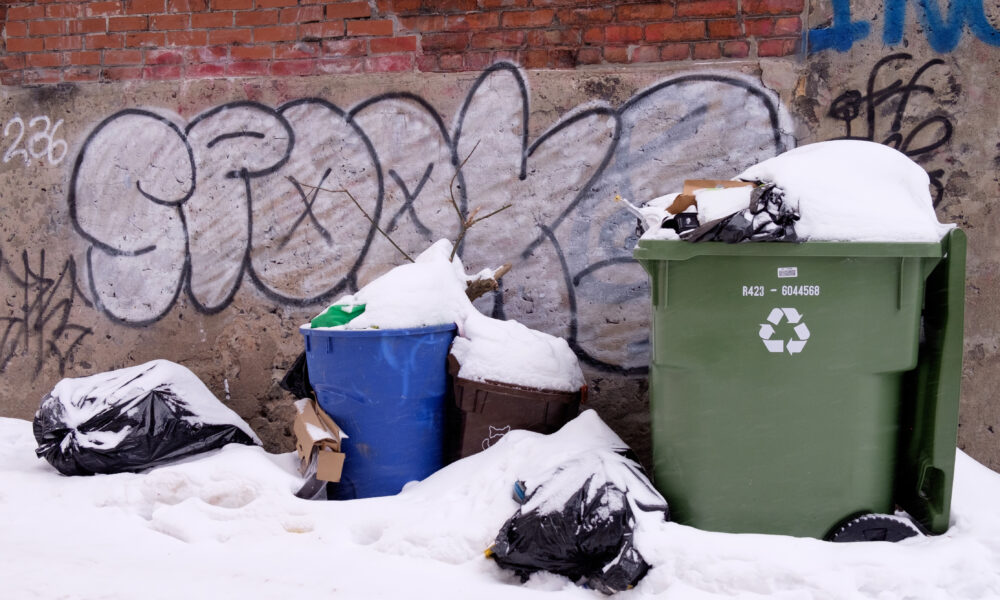Climate change is a pressing issue across the world: As the dramatic toll of human habits on the environment becomes increasingly evident, researchers and policymakers must find new, creative ways to address these habits’ detrimental impacts. World leaders, scientists, and even many citizens don’t lack knowledge about the causes of climate change. Power generation, manufacturing, deforestation, and transportation are all well-documented polluters. Rather, political divisions, dependence on fossil fuels, and a lack of climate education contribute to a limiting worldwide response and a feeling of hopelessness, leading to what is often referred to as “climate anxiety.”
Limiting waste by reducing consumption is ideal, with the extraction and processing of goods contributing significantly to greenhouse gas emissions. On the other end of consumption is waste management, which, depending on the method, also dramatically impacts the environment. Organic waste (food, paper, and yard waste) in landfills releases methane, a potent greenhouse gas. Although landfills and waste are major issues in many countries, small island developing states (SIDS) are a particularly tricky problem in terms of waste management.
A group of scientists from McGill, Nanyang Technological University, and the United Nations (UN) recently published a paper highlighting the importance and viability of effective waste management in the Maldives. The paper explores various approaches that would transform waste into energy by “recycling” garbage and turning it into electricity, heat, and fertilizer. Given the varied distribution of the Maldives’ population, as well as limited land suitable for landfills, alternative methods of waste management are necessary for different areas of the country.
In an interview with The Tribune, Vijaya Raghavan, a professor in McGill’s Department of Bioresource Engineering, emphasized the importance of individualized approaches.
“The waste-to-energy concept is necessary for small, large, [and] medium countries, so we [researchers] are doing it. You know, we used to throw our waste into the river. That is no longer viable,” Raghavan said. “It is all value, it is not waste. So therefore we need to recover that value.”
In this context, the “value” of the waste is in the form of organic matter, integral to the waste-to-energy concept. The Maldives, in particular, throws away immense amounts of organic matter. In the capital, Malé, incineration effectively eliminates waste while supplying renewable energy. The Maldives already employs incineration as a major method of waste disposal, but lacks the necessary infrastructure to safely dispose of the chemicals or harness the maximum amount of energy possible.
“But, you know, those islands are pretty small, and the resources are limited and they don’t necessarily have the right kind of infrastructure,” Raghavan noted.
Although the largest cities in the Maldives are able to reliably receive electricity all day, residents on the smaller islands can only rely on a few hours of electricity per day. Biogas, a fuel derived from organic matter and produced via the digesters, would provide sufficient energy for many of these residents’ day-to-day tasks, while removing their dependence on fossil fuels, such as kerosene, and limiting the necessity of large infrastructure projects.
The specific obstacles effective waste management faces in the Maldives are not the same as those in Canada or the United States. Every country, by necessity, varies in its approach to waste management and, in the grander scheme of things, climate policy in general.
As Raghavan stated, “When you go through the waste, those are big numbers, huge numbers. There is no unique solution to get out of it.”
Waste management in the Maldives serves as just one example of the efforts to combat climate change, but it also highlights the importance and difficulties in case-by-case climate policy designed to meet the specific needs of every country. A single approach does not suffice; policy must vary, and researchers such as Raghavan are actively contributing to the research that aims to inform such policies.
“Things that I do can fit into different slots. So that is what is happening, and then we are, now especially, very very mindful. Everything that you do—it has to be sustainable,” Raghavan said.








